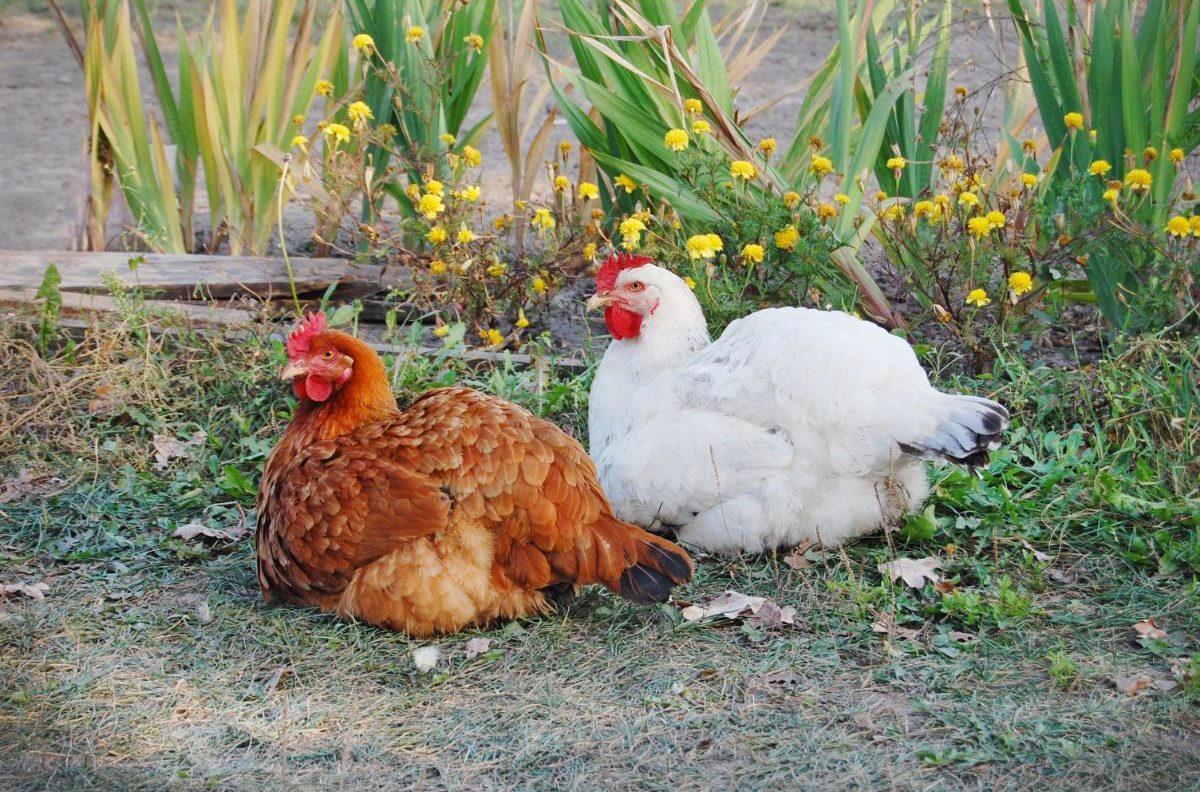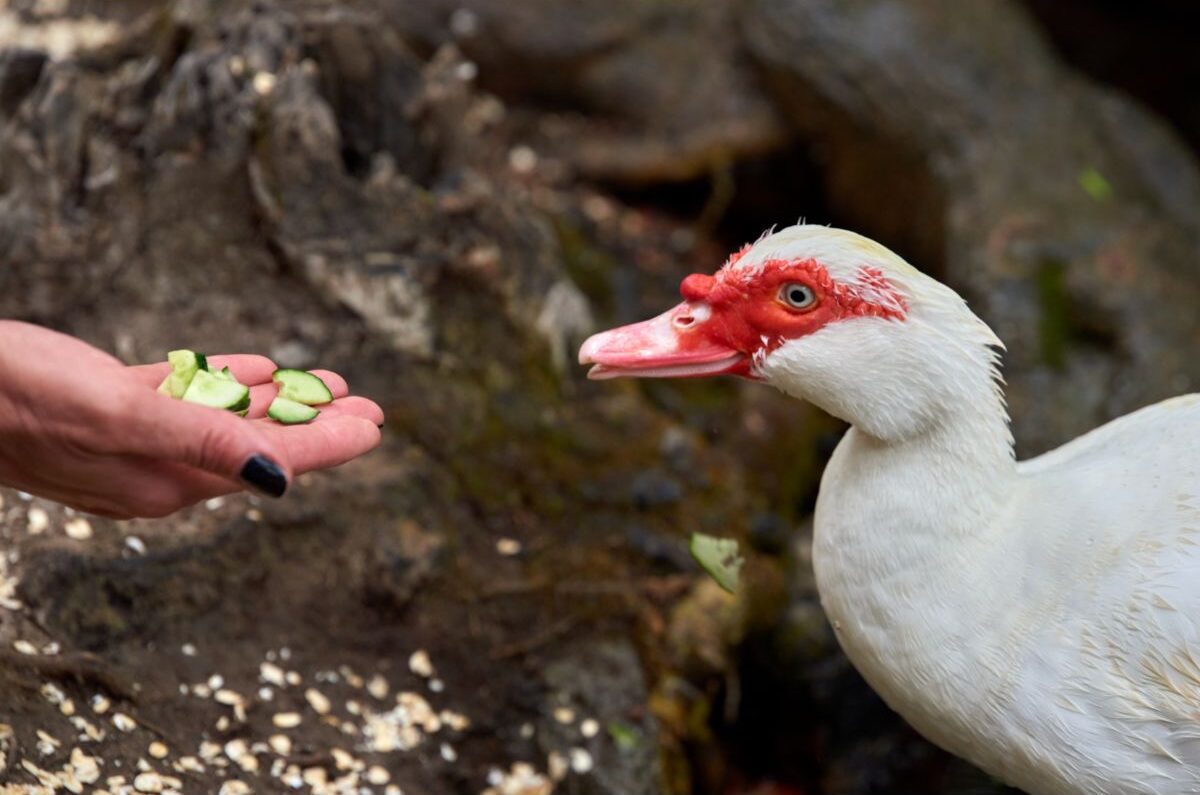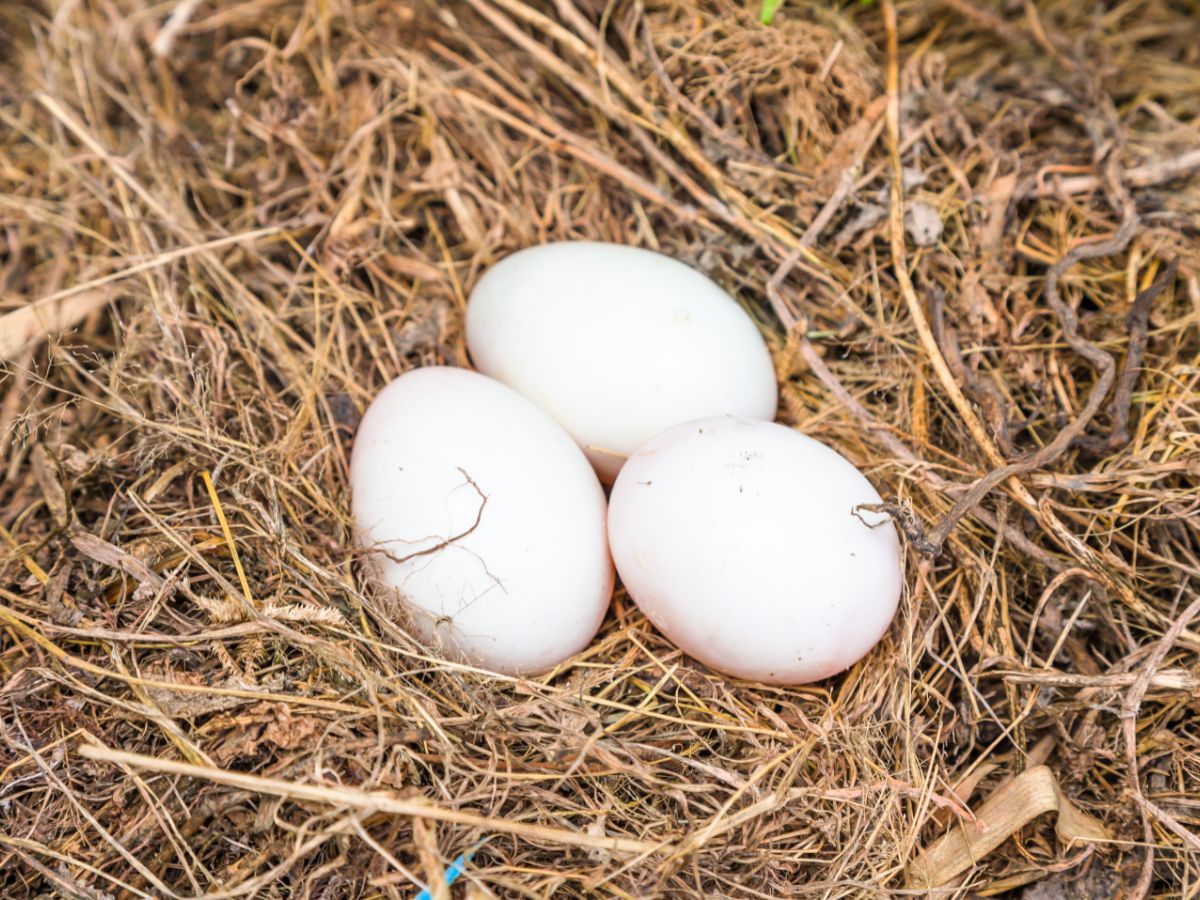Chickens make for lovely animals around your property, and there is nothing better than a freshly laid egg! However, one of the difficulties of keeping chickens is that they love your garden just as much as you do – and they show their love by scratching it to pieces! So, how do you chicken-proof your garden?
Fencing off your garden is the most effective way to keep chickens from destroying your plants. Chicken-mesh, hardware material, and small stones around the bases of your plants can be used to protect them. Supervising your chickens when in the garden also lets you intervene in any damage.
As a new chicken owner, nothing can be more frustrating than trying to keep your chickens from razing your garden to the ground. Luckily, there are a few trustworthy, time–tested tricks for doing so! Read on for my tips on how to keep your plants safe from even the most determined flock of chickens!
Contents
How To Chicken-Proof Your Garden
There are several different ways to chicken–proof your garden, and each serves different purposes. Whether you’re wondering how to build a chicken-proof fence, protect vulnerable plants, or prevent your chickens from creating dustbathes in your garden, we have everything you need to know.
Fence Of Your Garden To Keep Chickens Out
If possible, try to fence vulnerable areas like your vegetable garden off so that the chickens can’t access the plants growing there. If you’re an avid gardener, fencing is your most secure and long-term solution, as well as the one that will bring you the greatest peace of mind.
How To Build A Chicken-Proof Fence
When fencing off an area to keep chickens out, there are a few things you need to keep in mind.
- Make sure your fence is tall enough. Chickens, even those clipped wings, will happily fly over a two-foot fence. Aim for a four to six feet high fence to ensure that they can’t get over it.
- Use chicken mesh at the base of your fence. Chickens can get through fences constructed from wire strands, so you need to reinforce the bottom foot of your fence with chicken mesh or a small wire lattice. This will prevent your chickens from sneaking in when your back is turned.
- Weigh down the mesh at the bottom of your fence. Chickens are notoriously good at scratching, and if there is a loose bottom to your fence, they’ll soon sniff it out. I recommend weighing the bottom of your mesh with bricks or stones to keep it secure and impenetrable.
Use Chicken Mesh To Protect Your Plants
If, on the other hand, your chickens roam your garden and you wish to protect certain vulnerable plants from their pecking and scratching, then chicken mesh is your best ally.
This wire mesh is specifically designed to protect plants from chickens, as its holes are too small to allow a chicken’s head to reach through it to the enticing vegetables below.
A collar of chicken mesh can be placed around small plants like strawberries to deter chickens.
With the help of a few wooden or steel stakes, chicken mesh can also be shaped into cages to protect fruiting plants like tomatoes and gooseberries, which would otherwise be the first vegetation to be raided when your birds got a chance.

Use Hardware Cloth To Protect Seedlings From Chickens
Hardware cloth provides a more workable and sturdier alternative to chicken mesh and can be used in a similar way to protect your plants.
This fine wire mesh is perfect for protecting your seedlings, ground covers, and new plants in spring. The cloth can be easily cut and bent to create little cages which, when weighed down with bricks or stones, are guaranteed to keep your greenery safe.
You can also lay a more delicate metal cloth over freshly mulched or newly planted ground, as this will prevent your chickens from scratching up your bed or disturbing your seeds. Don’t forget to weigh the cloth down, or your chickens will soon have it shifted over to expose the tempting ground!
Place Stones Around Small Plants To Protect Them From Chickens
For a simple solution, stones can also be used to protect your plants from being scratched up by your chickens.
Placing small stones or bricks around the base of small plants and shrubs protects their roots from damage when your chickens are scratching for food or taking their daily dustbathes.
More delicate or less established plants in particular benefit from this, as it protects their fragile roots from damage that could be fatal.
In young trees, placing rocks around their bases can protect their roots until they are sturdy enough to coexist with your feathered friends.
This is also an effective way of protecting plants in newly potted containers. This is important, as chickens are only too glad to scratch all the loose soil out of a freshly planted pot if they’re given a chance.
Let Weeds Protect Your Garden From Your Chickens
While turning to weeds to help protect your veggies might seem strange, they can be invaluable in the fight with your flock over who has the rights to your garden.
Pulling up weeds between vegetable or flowering plants exposes patches of bare earth, which are magnets for your chickens. After pecking the area clean of insects, your birds will transform that patch of your garden into a dust bath – and then a dust bowl– destroying the nearby plants in the process.
Leaving the weeds between your plants – and just weeding a little around the base – thus prevents your chickens from scratching your vegetable bed to the ground. Leaving in the weeds has the additional benefit of trapping moisture and nutrients in the soil, which your plants will thank you for too!
Supervise Your Chicken’s Time In The Garden
If you cannot implement any of the suggestions above, a simple solution is to give your chickens limited time in the garden under your supervision. This way, they can benefit from time in the garden, and you can make sure that nothing vulnerable or important is getting scratched or pecked at.
The best time to give your chickens their garden time is early evening, perhaps when you get back from work. As chickens get sleepy as dusk approaches, this means that after an hour or two, they will head back to the coop of their own accord.
Conclusion
When keeping chickens, one of the biggest concerns is protecting your garden. Fencing off vulnerable parts of your garden from your chickens is the most efficient way of protecting your plants. If you’re considering this option, use mesh to fence the area and make sure that your fence is at least four feet high.
If you wish to protect vulnerable plants in the area your chickens are inhabiting, use chicken mesh, hardware material, and stones to shield the leaves, fruit, and roots. Allowing weeds to grow between your plants prevents chickens from scratching up the ground, and supervisedgardentime allows your chickens and plants to coexists comfortably.




